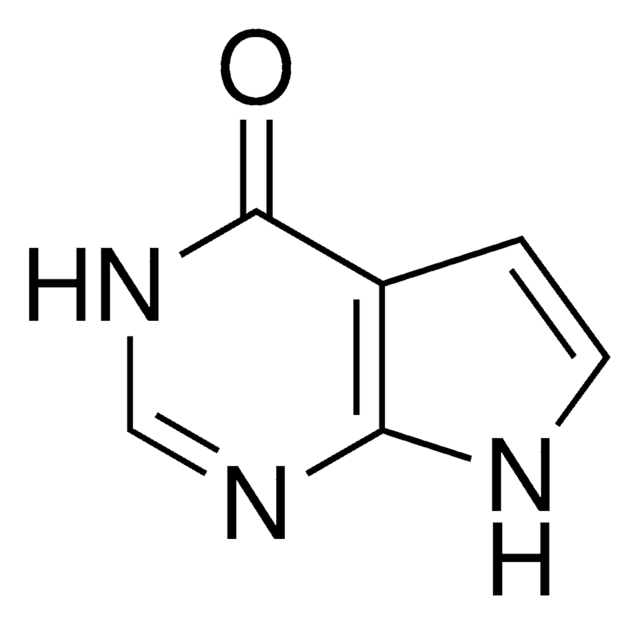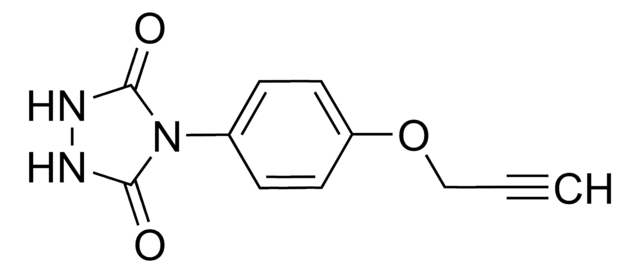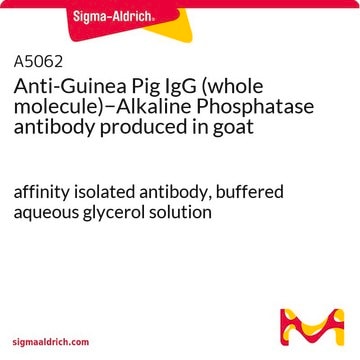B2311
5-(2-Benzothiazolyl)-3-ethyl-2-[2-(methylphenylamino)ethenyl]-1-phenyl-1H-benzimidazolium iodide
≥98% (HPLC)
Sign Into View Organizational & Contract Pricing
All Photos(1)
About This Item
Empirical Formula (Hill Notation):
C31H27IN4S
CAS Number:
Molecular Weight:
614.54
MDL number:
UNSPSC Code:
12352200
PubChem Substance ID:
NACRES:
NA.77
Recommended Products
Assay
≥98% (HPLC)
form
powder
color
yellow to orange
solubility
DMSO: 5 mg/mL, clear
storage temp.
2-8°C
SMILES string
[I-].CC[n+]1c(\C=C\N(C)c2ccccc2)n(-c3ccccc3)c4ccc(cc14)-c5nc6ccccc6s5
InChI
1S/C31H27N4S.HI/c1-3-34-28-22-23(31-32-26-16-10-11-17-29(26)36-31)18-19-27(28)35(25-14-8-5-9-15-25)30(34)20-21-33(2)24-12-6-4-7-13-24;/h4-22H,3H2,1-2H3;1H/q+1;/p-1
InChI key
NAYRELMNTQSBIN-UHFFFAOYSA-M
Biochem/physiol Actions
5-(2-Benzothiazolyl)-3-ethyl-2-[2-(methylphenylamino)-ethenyl]-1-phenyl-1H-benzimidazolium, or Akt Inhibitor IV, is a cell-permeable benzimidazole compound that inhibits Akt phosphorylation/activation by targeting the ATP binding site of a kinase upstream of Akt, but downstream of PI3K. Shown to block Akt-mediated FOXO1a nuclear export (IC50 = 0.625μM) and cell proliferation (IC50 < 1.25μM) in 786-O cells. Unlike phosphatidylinositol analog-based Akt inhibitors, this inhibitor does not affect PI3K.
5-(2-Benzothiazolyl)-3-ethyl-2-[2-(methylphenylamino)ethenyl]-1-phenyl-1H-benzimidazolium iodide, or Akt Inhibitor IV, is a cell-permeable benzimidazole compound that inhibits Akt phosphorylation/activation by targeting the ATP binding site of a kinase upstream of Akt, but downstream of PI3K.
Features and Benefits
This compound is featured on the PKB/Akt page of the Handbook of Receptor Classification and Signal Transduction. To browse other handbook pages, click here.
Storage Class Code
11 - Combustible Solids
WGK
WGK 3
Flash Point(F)
Not applicable
Flash Point(C)
Not applicable
Personal Protective Equipment
dust mask type N95 (US), Eyeshields, Gloves
Choose from one of the most recent versions:
Already Own This Product?
Find documentation for the products that you have recently purchased in the Document Library.
Emmanuel Chautard et al.
Neuro-oncology, 12(5), 434-443 (2010-04-22)
Radiation therapy plays a central role in the treatment of glioblastoma, but it is not curative due to the high tumor radioresistance. Phosphatidyl-inositol 3-kinase/protein kinase B (Akt) and Janus kinase (JAK)/signal transducer and activator of transcription 3 (STAT3) pathways serve
Jinxia Liu et al.
Oncogenesis, 9(9), 84-84 (2020-09-26)
β-Adrenergic receptor (β-AR) signalling is strongly associated with tumour progression by the coupling of β-ARs with either a G protein or β-arrestin; however, the related mechanism underlying hepatocellular carcinoma (HCC) metastasis is not clear. Here, we reveal that the transcription
Wenda Di et al.
FASEB journal : official publication of the Federation of American Societies for Experimental Biology, 34(2), 2075-2086 (2020-01-08)
In the free-living nematode Caenorhabditis elegans, the serine/threonine-specific protein kinase, AKT, is known to play a key role in dauer formation, life-span, and stress-resistance through the insulin-like signaling pathway. Although the structure and function of AKT-coding genes of C. elegans
Pavithra Lakshminarasimhan Chavali et al.
The Journal of biological chemistry, 286(11), 9393-9404 (2010-12-08)
Hypoxia promotes neural stem cell proliferation, the mechanism of which is poorly understood. Here, we have identified the nuclear orphan receptor TLX as a mediator for proliferation and pluripotency of neural progenitors upon hypoxia. We found an enhanced early protein
Mei-Tsz Su et al.
Journal of hypertension, 37(12), 2461-2469 (2019-07-25)
Recent studies suggested that prophylactic aspirin prior to 16 weeks of gestation in high-risk patients may reduce the risk of developing preeclampsia; however, the exact mechanism of aspirin's effect on the pathophysiology of preeclampsia is not clear. This study was
Articles
Our team of scientists has experience in all areas of research including Life Science, Material Science, Chemical Synthesis, Chromatography, Analytical and many others.
Contact Technical Service








